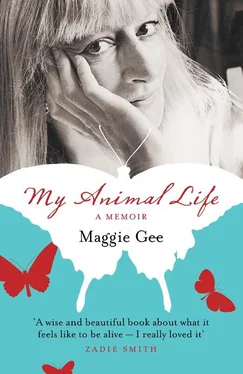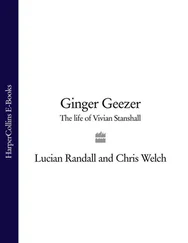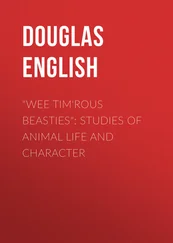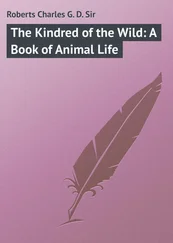And in many respects I identify. I too am a Gee, and not always easy to live with. Gees are wonderful in theory, but oppressive and abrasive in practice. Oversensitive perfectionists who can keep working for ever, Gees have to learn the concept of ‘good enough’, ‘getting by’ and ‘leave well alone’. I have to learn them. I am learning still. My father never learned to leave people alone. He wanted more from them; restlessly, urgently, he demanded more than he could be given.
(The body, of course, is the sane limiter of the mind. I learned not to overwork through my body refusing. Once I used to work through the night until I finished a piece; I fooled myself I was a pioneer pressing on through the hours when other people slept. Alone down that lit-up wire above the void. What arrogance! One night I fell off into nothingness and could not get back up again. I came up to bed at five, as many times before, with the light cracking the curtains like an ill-timed migraine, crawled into bed beside my husband, curled into him as usual, tried to sleep. Instead I began shivering, at first a little, then helplessly, violently, as if I were having a fit. I could not stop, and my heart began racing. Nick woke up and tried to warm me. After half an hour, he called an ambulance. Two stout ambulance-women, loud cheery Londoners, were soon in the room. After about a quarter of an hour with my heart racing over 225 beats a minute, they dressed me up, put me in the ambulance on a monitor, and belted off to Central Middlesex Hospital, Park Royal. Before we got to the hospital, my heart kicked into a normal rhythm. The conclusion in my medical notes was sound: ‘Exhaustion’. I have never tried to work through the night again. One day I will die, but I want to live.)
Did my father once have a similar experience? He too would never give up until something was done. Even after retirement, he painted as if he were going to the block next day, carrying on through mealtimes, the Ribena arriving like a procession of jewels, keeping him going as the light faded. But something had made him value sleep excessively. To my mother’s unspoken distress (since they always had to go to bed together, just as they did everything else together), he had to be in bed every day by 9.30. He got up after my mother, around 7.30 to 8 am, so I make it he got ten hours of sleep; enough for a baby. Which in some respects is what he would have liked to be, safe in the dark with his wife, his mother.
She did as he asked and looked after him at home when he finally couldn’t get up any more. He had tried to outwit his own death (for the Parkinson’s never affected his brain) or perhaps to outpace it, getting to the tape before the stage of indignity and helplessness. On my last ‘normal’ visit he sat, reduced, a cold, swaddled stick-man too clenched to smile. ‘I’m no good any more, Margaret,’ he said. I should have just received the message he gave, a simple message that mattered to him, a stark truth he was brave enough to state. But instead I replied with dishonest love, ‘Don’t say that. We’re glad you’re still here.’ About three weeks before he died, he tried to kill himself with whisky (which he never drank) and aspirin. All that happened was that he did not wake up until midday the next day, with a hangover. I don’t think he considered my mother (who would have been implicated) or the children. It was the ruthless side of him; rough courage. He took on death, and lost. Then he asked his GP to help him out, and was indignant when refused. But the doctor did give him advice: ‘Stop eating.’ Dad did stop eating. Death hurried closer.
I was staying with my elder brother in Lincolnshire when my mother phoned. ‘Come,’ she said. ‘Dad can’t get up. I can’t manage on my own.’ She, who always managed, needed us at last.
The doctor had put him on a morphine pump, a little black-and-clear vial attached to a vein, fixed by the side of the bed where he lay. Dad did not really want his children there, but he accepted my mother needed me. He was no longer making the rules. I tried to tell him that I loved him. In the overheated house, death ground into gear, getting ready for the last assault. Shrunken as Dad was, he still seemed so strong.
My mother became desperate to get out of the house. Only an hour before he died, she made me go for a walk in the next-door field, leaving my father alone with the elderly home help, who was naturally unwilling to be left in charge, and I was very anxious, and eager to get back, but Mum doggedly wanted to stay out in the air. There was no sunshine, just a wide grey sky. We seemed dwarfed by it, in the empty field. Coarse grass, rugged cloud, red clover, and a death going on in the red brick box nearby. ‘Mum, we have to go back.’ Holding hands, we went back.
Till the end he kept surfacing, uneasy, desperate, and we were torn between pity and fear, and used the manual override on the pump to take him back down to oblivion. In the end, his strong body was overcome. His colour changed, suddenly yellow-white all over, and his hand, very quickly, felt icy cold.
His death was not calm, or kind, or resigned, but he died at home, as was his wish, protected from strangers, free of nurses. It was the end his own father had begged for: ‘Don’t let me go to Rennie Lodge, Aileen.’
At his funeral, all his children spoke. I chose Shakespeare’s ‘Fear no more the heat o’ the sun.’ He was a fearful man who no longer had anything to be afraid of; he was a brave man despite his fear; he had always, unstintingly, uncomplainingly, supported us. Home was what he lived for and he loved us absolutely, with a blind, worry-filled, concentrated love. He was fiercely proud of each one of us, and prayed for us each night on his knees, though he was too obstinate to go to church. His belief in me helped me to write. He told Aunty Kit I would be a great writer. My mother ferried this back to me, and though he was formally unqualified to make the judgement, that generous faith surged like a wave behind me.
I imagine my father slipping once again through the golden fields of grain between Stony Stratford and Wolverton, sloping home through the late sun, light on his small feet, stopping to dribble and kick a stone, his check Viyella shirt soft and warm on his neck, his pale blue painter’s and meteorologist’s eyes as keen as they were when he was a boy, enjoying and naming the gentle feathers of cirrus cloud high in the sky, nothing to worry about, no one to fret, the money he had earned a friendly weight in his pocket, going home for a rest now, Vic Gee of Wolverton, sure he would be welcome at last, going home.
Fear no more the heat o’ the sun
Nor the winter’s barren rages .
Thou thy earthly task hast done ,
Home art gone, and ta’en thy wages .
Mum died exhausted, herself, six months later. At least she had lived alone, and for herself, for a while, and danced in the kitchen to her tapes, and come to London, and watched The Sound of Music tucked up in bed with her adored Rosa, and met my friends, who liked her; and at home, made a friendship, unmonitored by Dad, with her witty neighbour Janet, and rode her red bike, and drove off to Weybourne every morning before breakfast to go swimming.
And then there were the weeks we spent together, Mum and I, a final gift from the gods before everything was taken away. We had never had enough time à deux : never had a mum-and-daughter day out, or lunch out, let alone a mum-and-daughter holiday. Dad was jealous even of the coffees we had, at the Copper Kettle, in Billingshurst, when we were shopping. He would tap his watch: ‘What took you so long?’
Now I came to stay with Mum on her own, and we had a month of amity and happiness, Marg and Mum, Mum and Marg. My husband let me go, as he always let me go, as Vic could never let Aileen go. I wrote in the day, in the warm cedar shed, and in the evening we ate delicious meals and drank sherry and watched TV. And my mother bought clothes. After a lifetime of ‘not spoiling herself’, she spent the small reserve of money in the bank on jackets and skirts and blouses, all in the bright colours she loved, mostly scarlet. Maybe she had a premonition, one of her rare and unlucky premonitions, that there would be no use for the money later.
Читать дальше












